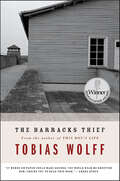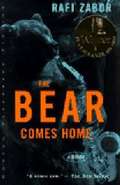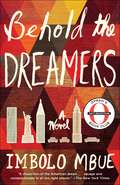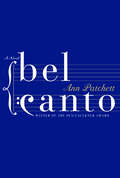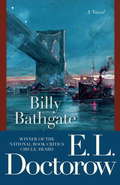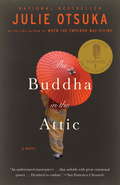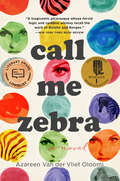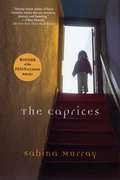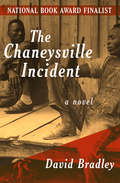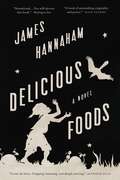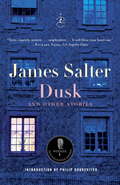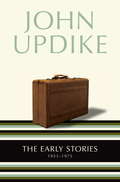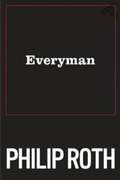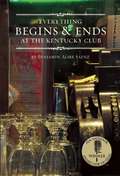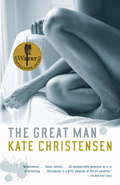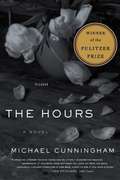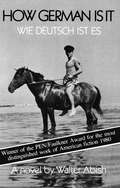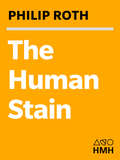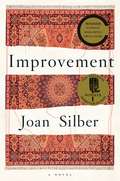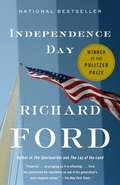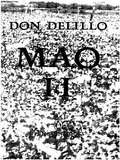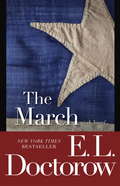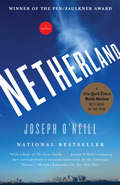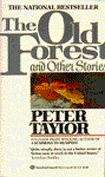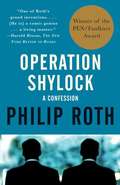Special Collections
PEN/Faulkner Award for Fiction
- Table View
- List View
The Barracks Thief
by Tobias WolffThe Barracks Thief is the story of three young paratroopers waiting to be shipped out to Vietnam. Brought together one sweltering afternoon to stand guard over an ammunition dump threatened by a forest fire, they discover in each other an unexpected capacity for recklessness and violence. Far from being alarmed by this discovery, they are exhilarated by it; they emerge from their common danger full of confidence in their own manhood and in the bond of friendship they have formed.This confidence is shaken when a series of thefts occur. The author embraces the perspectives of both the betrayer and the betrayed, forcing us to participate in lives that we might otherwise condemn, and to recognize the kinship of those lives to our own.
The Bear Comes Home
by Rafi ZaborAn alto-sax virtuoso is trying to evolve a personal style out of Coltrane and Rollins. He also happens to be a walking, talking, Blake- and Shakespeare-quoting bear whose musical, spiritual, and romantic adventures add up to the novel.
Behold the Dreamers
by Imbolo MbueA compulsively readable debut novel about marriage, immigration, class, race, and the trapdoors in the American Dream--the unforgettable story of a young Cameroonian couple making a new life in New York just as the Great Recession upends the economy.
Jende Jonga, a Cameroonian immigrant living in Harlem, has come to the United States to provide a better life for himself, his wife, Neni, and their six-year-old son. In the fall of 2007, Jende can hardly believe his luck when he lands a job as a chauffeur for Clark Edwards, a senior executive at Lehman Brothers. Clark demands punctuality, discretion, and loyalty--and Jende is eager to please. Clark's wife, Cindy, even offers Neni temporary work at the Edwardses' summer home in the Hamptons.
With these opportunities, Jende and Neni can at last gain a foothold in America and imagine a brighter future. However, the world of great power and privilege conceals troubling secrets, and soon Jende and Neni notice cracks in their employers' façades.
When the financial world is rocked by the collapse of Lehman Brothers, the Jongas are desperate to keep Jende's job--even as their marriage threatens to fall apart. As all four lives are dramatically upended, Jende and Neni are forced to make an impossible choice.
A New York Times Bestseller
Bel Canto
by Ann PatchettSomewhere in South America, at the home of the country's vice president, a lavish birthday party is being held in honor of Mr. Hosokawa, a powerful Japanese businessman.
Roxanne Coss, opera's most revered soprano, has mesmerized the international guests with her singing.
It is a perfect evening--until a band of gun-wielding terrorists breaks in through the air-conditioning vents and takes the entire party hostage.
But what begins as a panicked, life-threatening scenario slowly evolves into something quite different, as terrorists and hostages forge unexpected bonds and people from different countries and continents become compatriots.
Without the demands of the world to shape their days, life on the inside becomes more beautiful than anything they had known before.
At once riveting and impassioned, the narrative becomes a moving exploration of how people communicate when music is the only common language. Friendship, compassion, and the chance for great love lead the characters to forget the real danger that has been set in motion and cannot be stopped.
Ann Patchett has written a novel that is as lyrical and profound as it is unforgettable. Bel Canto engenders in the reader the very passion for art and the language of music that its characters discover.
Winner of the 2002 Orange Prize for Fiction
Billy Bathgate
by E. L. DoctorowTo open this book is to enter the perilous, thrilling world of Billy Bathgate, the brazen boy who is accepted into the inner circle of the notorious Dutch Schultz gang. Like an urban Tom Sawyer, Billy takes us along on his fateful adventures as he becomes good-luck charm, apprentice, and finally protégé to one of the great murdering gangsters of the Depression-era underworld in New York City. The luminous transformation of fact into fiction that is E. L. Doctorow's trademark comes to triumphant fruition in Billy Bathgate, a peerless coming-of-age tale and one of Doctorow's boldest and most beloved bestsellers.
The Buddha in the Attic
by Julie OtsukaNATIONAL BESTSELLER • PEN/FAULKER AWARD WINNER • The acclaimed author of The Swimmers and When the Emperor Was Divine tells the story of a group of young women brought from Japan to San Francisco as &“picture brides&” a century ago in this "understated masterpiece ... that unfolds with great emotional power" (San Francisco Chronicle). In eight unforgettable sections, The Buddha in the Attic traces the extraordinary lives of these women, from their arduous journeys by boat, to their arrival in San Francisco and their tremulous first nights as new wives; from their experiences raising children who would later reject their culture and language, to the deracinating arrival of war. Julie Otsuka has written a spellbinding novel about identity and loyalty, and what it means to be an American in uncertain times.
Call Me Zebra
by Azareen Van der Vliet OloomiWinner of the PEN/Faulkner Award for Fiction “Hearken ye fellow misfits, migrants, outcasts, squint-eyed bibliophiles, library-haunters and book stall-stalkers: Here is a novel for you.”—Wall Street Journal“A tragicomic picaresque whose fervid logic and cerebral whimsy recall the work of Bolaño and Borges.” —New York Times Book ReviewLonglisted for the PEN/Open Book Award * An Amazon Best Book of the Year * A Publishers Weekly BestsellerNamed a Best Book by: Entertainment Weekly, Harper's Bazaar, Boston Globe, Fodor's, Fast Company, Refinery29,Nylon, Los Angeles Review of Books, Book Riot, The Millions, Electric Literature, Bitch, Hello Giggles, Literary Hub, Shondaland, Bustle, Brit & Co., Vol. 1 Brooklyn,Read It Forward,Entropy Magazine,Chicago Review of Books, iBooks and Publishers Weekly Zebra is the last in a line of anarchists, atheists, and autodidacts. Alone and in exile, she leaves New York for Barcelona, retracing the journey she and her father made from Iran to the United States years ago. Books are her only companions—until she meets Ludo. Their connection is magnetic, and fraught. They push and pull across the Mediterranean, wondering if their love—or lust—can free Zebra from her past. Starring a heroine as quirky as Don Quixote, as brilliant as Virginia Woolf, as worldly as Miranda July, and as spirited as Lady Bird, Call Me Zebra is “hilarious and poignant, painting a magnetic portrait of a young woman you can’t help but want to know more about” (Harper’s Bazaar).
The Caprices
by Sabina MurrayWinner of the PEN/Faulkner award for fiction in 2003, The Caprices is a collection of stories artfully told across the theatre of the Pacific Campaign of World War II. An Anglo-Indian cavalryman, his homeland on the brink of revolution, finds himself in Malaysia fighting to protect British interests. Two soldiers lost in the jungle with a Japanese prisoner confront their prejudices toward each other, and the nature of being American. An island witnesses the passing of history from Magellan, to Amelia Earhart, to the dropping of the atomic bomb. With exquisite lyricism tempered by a journalist’s eye for detail, Murray shines light on the tangle of battles created by that conflict, the violent reach across the generations, the shattering reverberations in memory. With this collection, Sabina Murray established herself as a passionate and wise voice of literary fiction.
The Chaneysville Incident
by David BradleyWinner of the PEN/Faulkner: &“Rivals Toni Morrison&’s Song of Solomon as the best novel about the black experience in America since Ellison&’s Invisible Man&” (The Christian Science Monitor). Brilliant but troubled historian John Washington has left Philadelphia, where he is employed by a major university, to return to his hometown just north of the Mason–Dixon Line. He is there to care for Old Jack, one of the men who helped raise him when he was growing up on the Hill, an old black neighborhood in the little Pennsylvania town—but he also wants to learn more about the death of his father. What John discovers is that his father, Moses Washington, left behind extensive notes on a mystery he was researching: why thirteen escaped slaves reached freedom in Chaneysville only to die there, for reasons forgotten or never known at all. Based on meticulous historical research, The Chaneysville Incident explores the power of our pasts, and paints a vivid portrait of realities such as the Underground Railroad&’s activity in Bedford County, Pennsylvania, and the phenomenon of enslaved people committing suicide to escape their fate. This extraordinary novel, a finalist for the National Book Award, was described by the Los Angeles Times as &“perhaps the most significant work by a new black male author since James Baldwin dazzled in the early &’60s with his fine fury,&” and placed David Bradley in the front ranks of contemporary American authors.
Delicious Foods
by James HannahamDarlene, once an exemplary wife and a loving mother to her young son, Eddie, finds herself devastated by the unforeseen death of her husband. Unable to cope with her grief, she turns to drugs, and quickly forms an addiction. One day she disappears without a trace.
Unbeknownst to eleven-year-old Eddie, now left behind in a panic-stricken search for her, Darlene has been lured away with false promises of a good job and a rosy life. A shady company named Delicious Foods shuttles her to a remote farm, where she is held captive, performing hard labor in the fields to pay off the supposed debt for her food, lodging, and the constant stream of drugs the farm provides to her and the other unfortunates imprisoned there.
In Delicious Foods, James Hannaham tells the gripping story of three unforgettable characters: a mother, her son, and the drug that threatens to destroy them. Through Darlene's haunted struggle to reunite with Eddie, through the efforts of both to triumph over those who would enslave them, and through the irreverent and mischievous voice of the drug that narrates Darlene's travails, Hannaham's daring and shape-shifting prose infuses this harrowing experience with grace and humor.
The desperate circumstances that test the unshakeable bond between this mother and son unfold into myth, and Hannaham's treatment of their ordeal spills over with compassion. Along the way we experience a tale at once contemporary and historical that wrestles with timeless questions of love and freedom, forgiveness and redemption, tenacity and the will to survive.
Dusk and Other Stories
by James SalterJames Salter is an author with an impassioned following among contemporary readers, writers, and critics, and Dusk and Other Stories is among his signal achievements. First published nearly a quarter-century ago, and one of the very few short-story collections to win the PEN/Faulkner Award, this is American fiction at its most vital--each narrative a masterpiece of sustained power and seemingly effortless literary grace.
These stories chart the myriad moments and details that, taken together, shape a fate. Two New York attorneys newly flush with wealth embark on a dissolute tour of Italy. A divorced woman learns that she is about to lose the last thing of real value to her. An ambitious young screenwriter unexpectedly discovers the true meaning of art and glory. A rider, far off in the fields, is involved in an horrific accident—night is falling, and she must face her destiny alone.
Each of these stories is told with weighted calm, with a lingering mixture of precision and sudden revelation. They confirm James Salter as one of the finest writers of our time.
The Early Stories
by John UpdikeA harvest and not a winnowing, this volume collects 103 stories, almost all of the short fiction that John Updike wrote between 1953 and 1975. "How rarely it can be said of any of our great American writers that they have been equally gifted in both long and short forms," reads the citation composed for John Updike upon his winning the 2006 Rea Award for the Short Story. "Contemplating John Updike's monumental achievement in the short story, one is moved to think of Nathaniel Hawthorne, Henry James, Ernest Hemingway, and perhaps William Faulkner--writers whose reputations would be as considerable, or nearly, if short stories had been all that they had written. From [his] remarkable early short story collections . . . through his beautifully nuanced stories of family life [and] the bittersweet humors of middle age and beyond . . . John Updike has created a body of work in the notoriously difficult form of the short story to set beside those of these distinguished American predecessors. Congratulations and heartfelt thanks are due to John Updike for having brought such pleasure and such illumination to so many readers for so many years."
Everyman
by Philip RothPhilip Roth's new novel is a candidly intimate yet universal story of loss, regret, and stoicism. The best-selling author of The Plot Against America now turns his attention from "one family's harrowing encounter with history" (New York Times) to one man's lifelong skirmish with mortality.
The fate of Roth's everyman is traced from his first shocking confrontation with death on the idyllic beaches of his childhood summers, through the family trials and professional achievements of his vigorous adulthood, and into his old age, when he is rended by observing the deterioration of his contemporaries and stalked by his own physical woes.
A successful commercial artist with a New York ad agency, he is the father of two sons from a first marriage who despise him and a daughter from a second marriage who adores him. He is the beloved brother of a good man whose physical well-being comes to arouse his bitter envy, and he is the lonely ex-husband of three very different women with whom he's made a mess of marriage. In the end he is a man who has become what he does not want to be.
The terrain of this powerful novel -- Roth's twenty-seventh book and the fifth to be published in the twenty-first century -- is the human body. Its subject is the common experience that terrifies us all.
Everyman takes its title from an anonymous fifteenth-century allegorical play, a classic of early English drama, whose theme is the summoning of the living to death.
Everything Begins and Ends at the Kentucky Club
by Benjamin Alire SáenzWinner of the 2013 PEN/Faulkner Award for Fiction!
Benjamin Alire Sáenz's stories reveal how all borders--real, imagined, sexual, human, the line between dark and light, addict and straight--entangle those who live on either side. Take, for instance, the Kentucky Club on Avenida Juárez two blocks south of the Rio Grande. It's a touchstone for each of Sáenz's stories. His characters walk by, they might go in for a drink or to score, or they might just stay there for a while and let their story be told. Sáenz knows that the Kentucky Club, like special watering holes in all cities, is the contrary to borders. It welcomes Spanish and English, Mexicans and gringos, poor and rich, gay and straight, drug addicts and drunks, laughter and sadness, and even despair. It's a place of rich history and good drinks and cold beer and a long polished mahogany bar. Some days it smells like piss. "I'm going home to the other side." That's a strange statement, but you hear it all the time at the Kentucky Club.
Benjamin Alire Sáenz is a highly regarded writer of fiction, poetry, and children's literature. Like these stories, his writing crosses borders and lands in our collective psyche. Poets & Writers Magazine named him one of the fifty most inspiring writers in the world. He's been a finalist for the Los Angeles Times Book Prize and PEN Center's prestigious award for young adult fiction. Sáenz is the chair of the creative writing department of University of Texas at El Paso.
The Great Man
by Kate ChristensenOscar Feldman, the renowned figurative painter, has passed away. As his obituary notes, Oscar is survived by his wife, Abigail, their son, Ethan, and his sister, the well-known abstract painter Maxine Feldman. What the obituary does not note, however, is that Oscar is also survived by his longtime mistress, Teddy St. Cloud, and their daughters.
As two biographers interview the women in an attempt to set the record straight, the open secret of his affair reaches a boiling point and a devastating skeleton threatens to come to light. From the acclaimed author of The Epicure's Lament, a scintillating novel of secrets, love, and legacy in the New York art world.
The Hours
by Michael CunninghamPassionate, profound, and deeply moving, 'The Hours' is the story of three women: Clarissa Vaughan, who on one New York morning goes about planning a party in honor of a beloved friend; Laura Brown, who in a 1950s Los Angeles suburb begins to feel the constraints of a perfect family and home; and Virginia Woolf, recuperating in a London suburb, and beginning to write 'Mrs. Dalloway.' By the end of the novel, the stories have intertwined, and finally come together in an act of subtle and haunting grace, demonstrating Michael Cunningham's deep empathy for his characters as well as the extraordinary resonance of his prose.
Pulitzer Prize Winner
How German Is It (Wie Deutsch Ist Es)
by Walter AbishUlrich Hargenau testifies against fellow members of a German terrorist group in order to save himself and his wife, Paula, and contemplates the nature of his German heritage.
The question How German Is It underlies the conduct and actions of the characters in Walter Abish's novel, an icy panorama of contemporary Germany, in which the tradition of order and obedience, the patrimony of the saber and the castle on the Rhine, give way to the present, indiscriminate fascination with all things American. On his return from Paris to his home city of Würtenburg, Ulrich Hargenau, whose father was executed for his involvement in the 1944 plot against Hitler, is compelled to ask himself, "How German am l?"--as he compares his own recent attempt to save his life, and his wife Paula's, by testifying against fellow members of a terrorist group, with his father's selfless heroism. Through Ulrich--privileged, upper class--we confront the incongruities of the new democratic Germany, in particular the flourishing community of Brumholdstein, named after the country's greatest thinker, Brumhold, and built on the former site of a concentration camp. Paula's participation in the destruction of a police station; the State's cynical response to crush the terrorists; two attempts on Ulrich's life; the discovery in Brumholdstein of a mass grave of death camp inmates--all these, with subtle irony, are presented as pieces of a puzzle spelling out the turmoil of a society's endeavor to avoid the implications of its menacing heritage.
The Human Stain
by Philip RothIt is 1998, the year in which America is whipped into a frenzy of prurience by the impeachment of a president, and in a small New England town, an aging classics professor, Coleman Silk, is forced to retire when his colleagues decree that he is a racist. The charge is a lie, but the real truth about Silk would have astonished his most virulent accuser. Coleman Silk has a secret. But it's not the secret of his affair, at seventy-one, with Faunia Farley, a woman half his age with a savagely wrecked past - a part-time farmhand and a janitor at the college where, until recently, he was the powerful dean of faculty. And it's not the secret of Coleman's alleged racism, which provoked the college witch-hunt that cost him his job and, to his mind, killed his wife. Nor is it the secret of misogyny, despite the best efforts of his ambitious young colleague, Professor Delphine Roux, to expose him as a fiend. Coleman's secret has been kept for fifty years: from his wife, his four children, his colleagues, and his friends, including the writer Nathan Zuckerman, who sets out to understand how this eminent, upright man, esteemed as an educator for nearly all his life, had fabricated his identity and how that cannily controlled life came unraveled. Set in 1990s America, where conflicting moralities and ideological divisions are made manifest through public denunciation and rituals of purification, The Human Stain concludes Philip Roth's eloquent trilogy of postwar American lives that are as tragically determined by the nation's fate as by the "human stain" that so ineradicably marks human nature. This harrowing, deeply compassionate, and completely absorbing novel is a magnificent successor to his Vietnam-era novel, American Pastoral, and his McCarthy-era novel, I MARRIED A COMMUNIST.
Improvement
by Joan SilberOne of our most gifted writers of fiction returns with a bold and piercing novel about a young single mother living in New York, her eccentric aunt, and the decisions they make that have unexpected implications for the world around them.
Reyna knows her relationship with Boyd isn't perfect, yet as she visits him throughout his three-month stint at Rikers Island, their bond grows tighter.
Kiki, now settled in the East Village after a journey that took her to Turkey and around the world, admires her niece's spirit but worries that she always picks the wrong man. Little does she know that the otherwise honorable Boyd is pulling Reyna into a cigarette smuggling scheme, across state lines, where he could risk violating probation.
When Reyna ultimately decides to remove herself for the sake of her four-year-old child, her small act of resistance sets into motion a tapestry of events that affect the lives of loved ones and strangers around them.
A novel that examines conviction, connection, and the possibility of generosity in the face of loss, Improvement is as intricately woven together as Kiki's beloved Turkish rugs, as colorful as the tattoos decorating Reyna's body, with narrative twists and turns as surprising and unexpected as the lives all around us.
Independence Day
by Richard FordFrank Bascombe is no longer a sportswriter, yet he's still living in Haddam, New Jersey, where he now sells real estate. He's still divorced, though his ex-wife, to his dismay, has remarried and moved along with their children to Connecticut. But Frank is happy enough in his work and pursuing various civic and entrepreneurial sidelines. He has high hopes for this 4th of July weekend: a search for a house for deeply hapless clients relocating to Vermont; a rendezvous on the Jersey shore with his girlfriend; then up to Connecticut to pick up his larcenous and emotionally troubled teenage son and visit as many sports halls of fame as they can fit into two days. Frank's Independence Day, however, turns out not as he'd planned, and this decent, appealingly bewildered, profoundly observant man is wrenched, gradually and inevitably, out of his private refuge. Independence Day captures the mystery of life -- in all its conflicted glory -- with grand humour, intense compassion and transfixing power.
Mao II
by Don DelilloDon DeLillo presents an extraordinary new novel about words and images, novelists and terrorists, the mass mind and the arch-individualist. At the heart of the book is Bill Gray, a famous reclusive writer who escapes the failed novel he has been working on for many years and enters the world of political violence, a nightscape of Semtex explosives and hostages locked in basement rooms. Bill's dangerous passage leaves two people stranded: his brilliant, fixated assistant, Scott, and the strange young woman who is Scott's lover--and Bill's.
The March
by E. L. DoctorowIn 1864, Union general William Tecumseh Sherman marched his sixty thousand troops through Georgia to the sea, and then up into the Carolinas. The army fought off Confederate forces, demolished cities, and accumulated a borne-along population of freed blacks and white refugees until all that remained was the dangerous transient life of the dispossessed and the triumphant. In E. L. Doctorow’s hands the great march becomes a floating world, a nomadic consciousness, and an unforgettable reading experience with awesome relevance to our own times.
Netherland
by Joseph OneillIn a New York City made phantasmagorical by the events of 9/11, and left alone after his English wife and son return to London, Hans van den Broek stumbles upon the vibrant New York subculture of cricket, where he revisits his lost childhood and, thanks to a friendship with a charismatic and charming Trinidadian named Chuck Ramkissoon, begins to reconnect with his life and his adopted country. As the two men share their vastly different experiences of contemporary immigrant life in America, an unforgettable portrait emerges of an "other" New York populated by immigrants and strivers of every race and nationality. New York Times Book Review Best Book of the Year
The Old Forest and Other Stories
by Peter TaylorA collection of marvelous stories featuring 14 stories set in the cities of the Deep South in the 1920s and 30s distinguished by penetrating psychological acuity and beautiful writing of the highest order by the Pulitzer Prize winning author of "A Summons to Memphis." The subjects are ordinary people -- families and households of the time -- caught in the extraordinary tensions of everyday life.
Operation Shylock
by Philip RothPhilip Roth meets a man who may or may not be Philip Roth. Because someone with that name has been touring Israel, promoting a strange reverse escape of the Jews. Roth is intent on stopping him, even if that means impersonating his own imitator.
